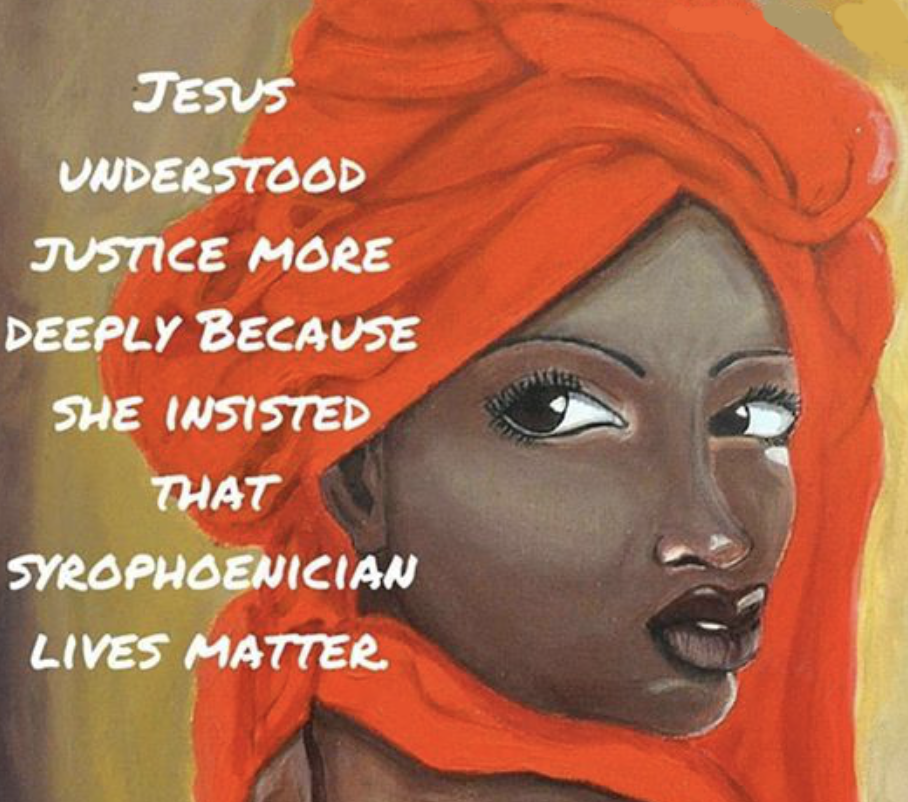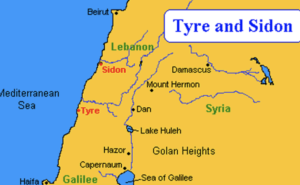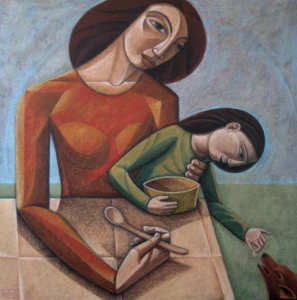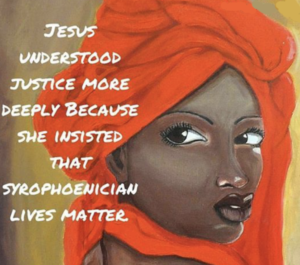
We often hear of disasters on the radio or see them on the TV or on our social media devices. We hear of them nigh on instantly these days. We might note those words that we extend “our thoughts and prayers”, or “our hearts go out to those affected”. We are wanting to express our deepest concerns to those who are suffering. But with the ever constantly changing news, our focus may not remain consistent for very long. From the news or from our own community, what’s on our heart today? Can we walk the walk as well as talk the talk?
Where are we?
Jesus has been really busy with the feeding of the 5000 men and families. He’s then told the disciples to set sail across the Sea of Galilee. As they are sailing across, fighting a storm, they reach halfway. There they were joined by Jesus … who was taking the direct path, by foot. When they had arrived, at a place called Gennesaret, they were met by a party of Pharisees. Here, Jesus engages in a lively debate about their desire for purity and our lives. Our lives which are complex, which don’t follow a set path.
Walk the walk as well as talk the talk
So we have the Pharisees, the super religious folk who appear a wee bit superior than most. That’s odd as when this Gospel was written, the Temple in Jerusalem had been razed to the floor by the Romans. The priests back then, the Sadducees, were no more; leaving the Pharisees rather isolated, still trying to encourage literal adherence to the Scriptures. The audience to Matthew’s Gospel will be acutely aware that the Pharisees focussed upon purity but, Jesus is suggesting heavily, that their hearts may not be the same as what they are saying. How do they describe that? Did they walk the walk as well as talk the talk? I suppose that could apply to us as well?
Matthew 15: 21-28 NRSVUE
Jesus … went away to the district of Tyre and Sidon. Just then a Canaanite woman from that region came out and started shouting, “Have mercy on me, Lord, Son of David; my daughter is tormented by a demon.” But he did not answer her at all. And his disciples came and urged him, saying, “Send her away, for she keeps shouting after us.” He answered, “I was sent only to the lost sheep of the house of Israel.” But she came and knelt before him, saying, “Lord, help me.” He answered, “It is not fair to take the children’s food and throw it to the dogs.” She said, “Yes, Lord, yet even the dogs eat the crumbs that fall from their masters’table.” Then Jesus answered her, “Woman, great is your faith! Let it be done for you as you wish.” And her daughter was healed from that moment.

According to Matthew, a Canaanite woman arrives on the scene. In Mark’s Gospel, it’s a Syrophoenician woman. But the Syrophoenicians, who would be living in what we now know as Lebanon, lived in part of the larger area then, known as Canaan. Jesus was seeking to arrive quietly in this Gentile area of Tyre and Sidon. All he wanted was a bit of peace.
Speaking Out
But the woman spoke out, because she wanted justice as her daughter was said to be demon possessed. What might that mean to you today? Was the daughter ill in some way, beyond the capabilities of the medical folk back then, so they used the term demon? The woman is not named, as is sadly often the case, but at least in Matthew’s Gospel many of her words are captured.
She shouts out ‘O Lord, Son of David’, so is aware of Jesus’ status, his capability to make significant changes in the lives of people – even if we are far from Jerusalem, and it wouldn’t be appropriate for a Canaanite to address Jesus in such terms. She sees beyond rules and hierarchy. The disciples are quick to step in to protect Jesus, but Jesus maintains the line he’s used previously that he is here to speak to the lost sheep of Israel – so why is he in Gentile country? Primarily his mission was to Israel, but God’s love extends to all. Here is an opportunity to highlight this.

Jesus continues to speak about the fairness of taking the bread of the children and throwing it to the dogs. Wow, this single sentence is full of hidden meaning.
In the Greek, the word we often see as children may really mean the immediate offspring or the immature inhabitant, no particular reference to age – so not necessarily a wee bain.
The word used for dogs may well mean a scraggy wild dog, not in this case, it is a house dog. An animal that might be fed from what has been removed from the table. This story isn’t about the dog but whether what Jesus offers is available to all. It is not about the dog but that the sustenance has fallen from what was accessible to some people, to somewhere where no sensible Jew would dare to look. It would be demeaning to do so. The Pharisees, who are eagerly listening, would see this as impure. Would we consider food fallen from the table as impure if we were so desperate to eat? Might this be a message that God’s sustenance is or all?
Children and dogs
This woman has a raw faith, not full of theological words, not embellished with fancy clothing or implied status. This is a real faith, pure in terms of trying to live for God in the real circumstances of the world, not in a dreamy, idealised world. Her responses seem to be from someone who is displaying raw emotions, truthful feelings, even if they appear very direct. Do we feel like expressing such feelings to God some days but feel it would be disrespectful? What stops us from telling God exactly what’s going on in our lives? Perhaps we should keep to just the set prayers.

This woman disagrees. She speaks her mind to God for justice for her daughter to be healed, restored – so she could be part of the community, for that is what healing might really provide. Her daughter would no longer be shunned, isolated but be part of the family from where they live. Here is faith in words and actions. How might we express our faith in words: through verses from the Bible, or what comes from our heart – raw, real. The woman didn’t need to say a specific prayer or say particular words to Jesus before he would bless her. Jesus hears the heartbeat of her faith, raw, vulnerable, honest – and responds. Jesus tells the woman what faith you have.
What might we want to say to God today about our world?
So, in this passage, we might focus upon a dog or the bread, but it is hearing the message to the Pharisees where we might learn more about ourselves. If we can’t walk the walk as well as talk the talk, then we can thank God for being with us still, ask to be transformed, changed. We might hear that woman’s voice and know that we too can speak out to God, be open and honest about the circumstances life has thrown at us, and seek God’s love and comfort. If we have low-self-esteem, or we believe that often we fail to achieve expectations, we are worried when we compare ourselves with others, know that Jesus came to blow apart hierarchy, to turn the tables on the superiority of society, offer that opportunity for all to be welcomed, accepted, and loved; and for our lives to flourish.
This woman spoke her mind to God because of the raw faith that she had. Can we?
I found the dialogue interesting and I enjoyed it
Could there also be a link to the 12.baskets of crumbs collected up after the feeding of the five thousand?
There might be *if* all of the Gospels recorded the feeding of the 5000 in the same timeline.